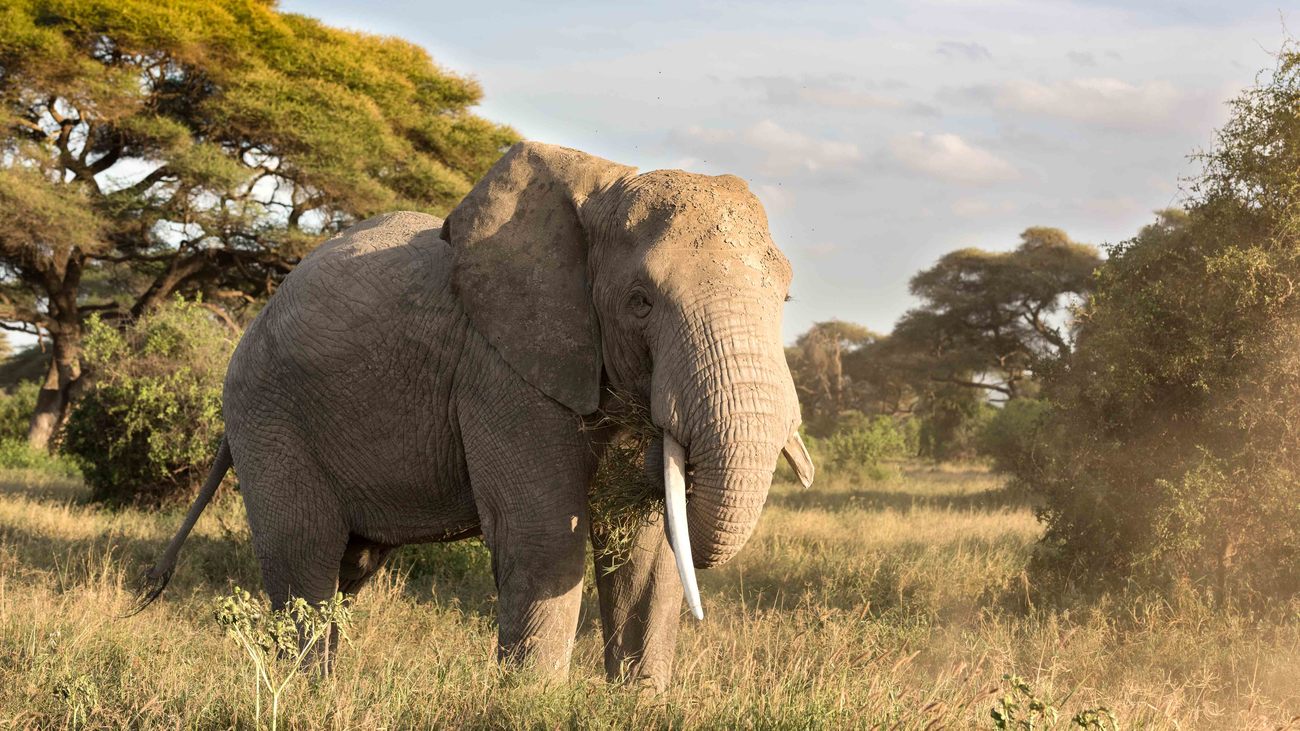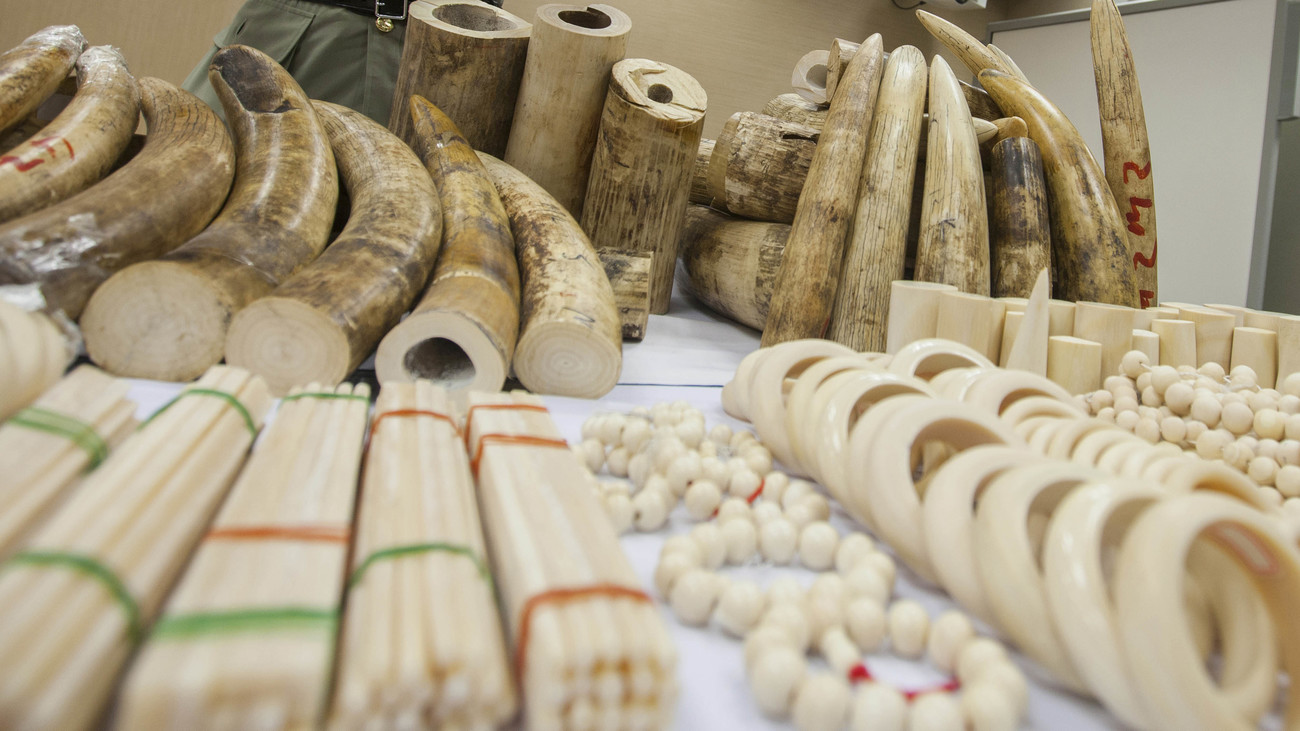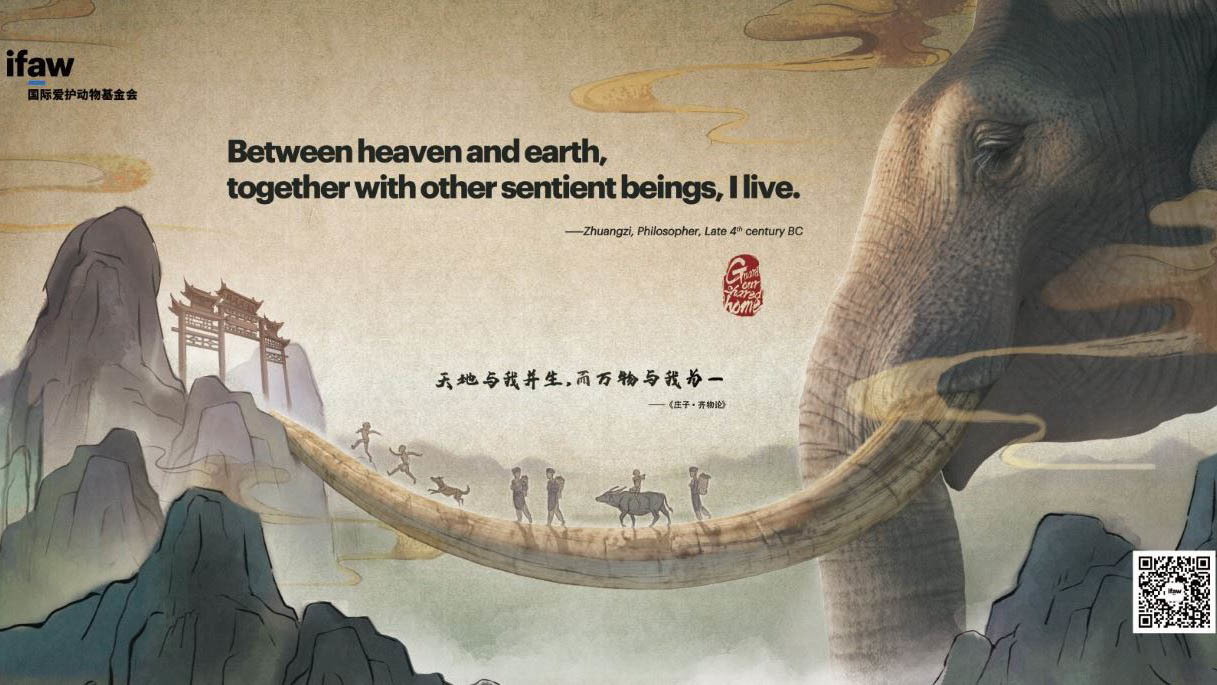Blog
A fragile start for a young rhino in Kaziranga
Read morea total ban on commercial trade in ivory comes into effect in Hong Kong S.A.R

Signifying a historic milestone for elephant conservation, a ban on all trade in elephant ivory took effect in Hong Kong Special Administrative Region (SAR) on December 31, 2021.
The ban prohibits the possession of ivory for commercial purposes, with the only exemption being for antique ivory dated before July 1, 1925. On the heels of last month’s announcement by the European Union (EU) of severe restrictions in ivory trade, we greet 2022 with renewed optimism for the protection and survival of elephants.
This ban is a culmination of the consensus reached by both China and the United States to jointly close their domestic ivory markets in 2015. In late 2016, a complete ban on commercial ivory processing and trade in Chinese Mainland was announced. The policy took effect on December 31, 2017 after a one-year transition period.
Similarly, at the end of 2016, the Hong Kong SAR promised to initiate legislative procedures to phase out the local ivory trade by amending the Protection of Endangered Species of Animals and Plants, which drew up a three-step, five-year plan and increased the penalties for smuggling and illegal trade of endangered species.
Five years later, Hong Kong SAR’s total ban marks the beginning of an “ivory ban” era in Chinese Mainland and Hong Kong SAR.
According to the Hong Kong SAR Agriculture, Fisheries and Conservation Department, interest in ivory processing and trade has dwindled in recent years. Many ivory shops now sell other goods too, and those skilled in ivory carving are fewer and farther between. During the five-year transition period, the Hong Kong SAR government provided reemployment training to help people in the ivory industry move into different careers.
In the 30 plus years since the international trade of ivory was banned, the total stock of commercial ivory registered with the Hong Kong SAR has fallen. In 1990, local traders held a total of 665 tonnes of ivory. By 2015, that number had decreased to 77 tonnes. Five years later, the total stock had dropped again, down to about 51 tonnes in 2020.

As the eighth busiest port in the world, Hong Kong SAR was once used as an important transit point for ivory smuggled from Africa to Asia. Often hidden in containers, most of the goods originated in Africa and were transported to Hong Kong SAR via Malaysia, Vietnam or Singapore, and then smuggled into Chinese Mainland or other countries and regions.
The anti-smuggling department of Chinese Mainland Customs and Hong Kong SAR Customs have continuously strengthened law enforcement cooperation in an effort to combat the smuggling of ivory and other products from endangered species. And IFAW has been there in support. In 2019, IFAW brought together law enforcers from Chinese Mainland, Hong Kong SAR and Vietnam to promote and foster the cross-border links and relationships that are essential to tackling transnational organized trafficking. The Hong Kong SAR has detected only three ivory smuggling cases since 2020, indicating the effectiveness of regional collaboration among key stakeholders.

China officially banned all forms of domestic ivory trade on December 31, 2017, sending a clear signal to global wildlife crime groups that peddling ivory in China would carry serious legal consequences and social costs. The ban on ivory trade not only cleared legal boundaries for domestic law enforcement and guided consumers to make more responsible choices, but also prompted other countries and regions to ban the trade of ivory by enacting the strongest control measures in history.
The results have been gratifying. The price of ivory in major consumer markets, including the underground black market, has dropped. In the online market, the results of the IFAW Asia team's online monitoring of illegal ivory products also shows a clear downward trend. 2020 data across 30 African elephant ranges show a continued downward trend in overall poaching numbers from 2011 to 2019. Governments and institutions focusing on ecological protection feel pleased by this change.
While much of the world has stepped up efforts to restrict ivory trade, some countries are lagging behind. As one of the world’s largest ivory markets, Japan shows no sign of stopping its domestic ivory trade, arguing that its market is completely legitimate and has no impact on ivory smuggling. The international community has not noticed the slack Japanese laws and their lack of enforcement.
Additionally, Thailand’s ivory trade continues without international supervision. In fact, some Southern African countries still have strong incentive to conduct one-off sales of their stockpiles, and countries with legal domestic markets like Japan and Thailand could be potential buyers. These markets have noticeable loopholes and systematically fail to comply with CITES (the Convention on International Trade in Endangered Species of Wild Fauna and Flora) regulations.
Bulk ivory smuggling driven by Western Africa-based syndicates also remains a significant threat. The international community must maintain pressure on those regions and governments that are falling short, and make concerted legislative efforts to eliminate all illegal trade. Relevant countries need to cooperate closely in the management of ivory stocks, the closing of domestic markets and strong legal enforcement.
CITES COP19 will be held in Panama in November 2022. We expect the Conference will make a further request for the above countries to close their domestic ivory markets as soon as possible.
Our work can’t get done without you. Please give what you can to help animals thrive.
Unfortunately, the browser you use is outdated and does not allow you to display the site correctly. Please install any of the modern browsers, for example:
Google Chrome Firefox Safari